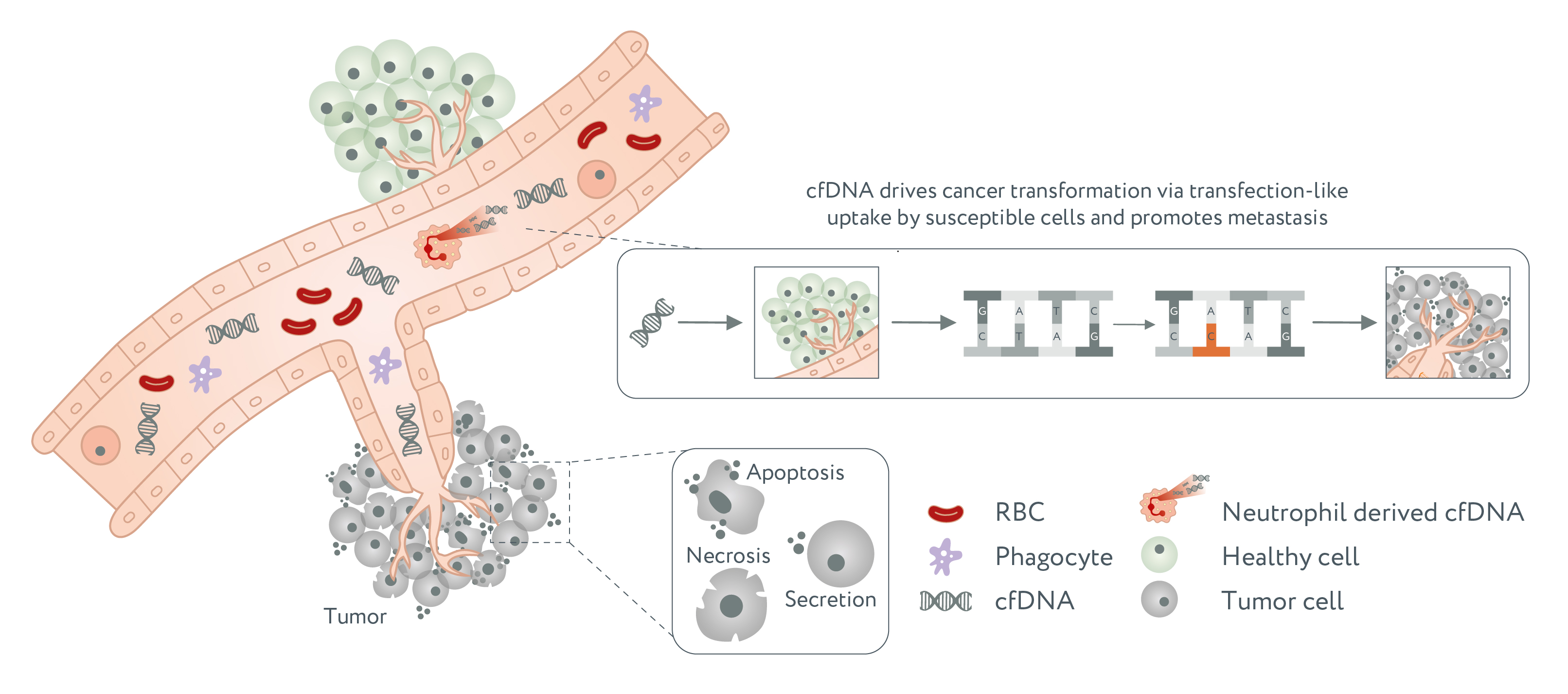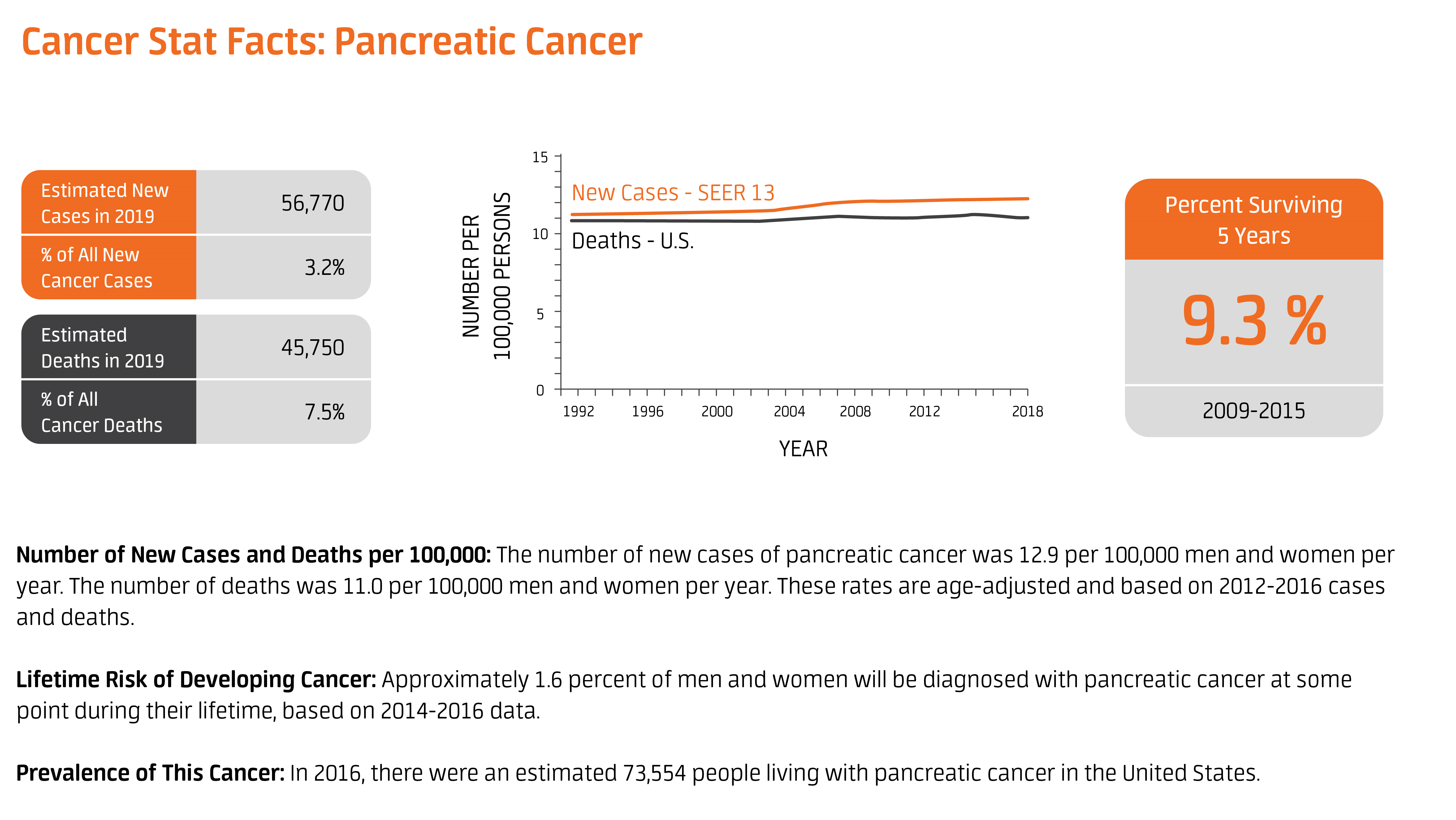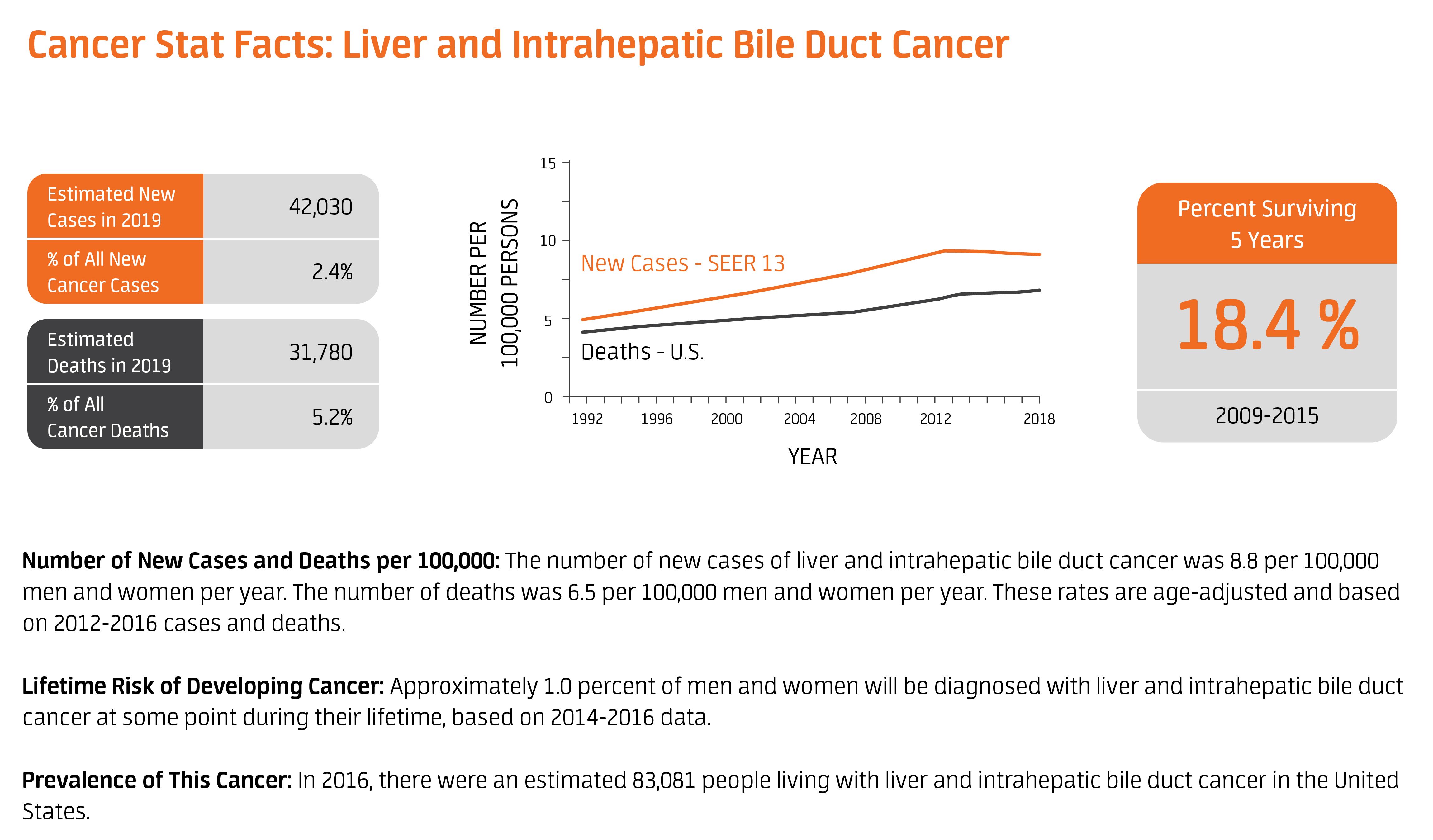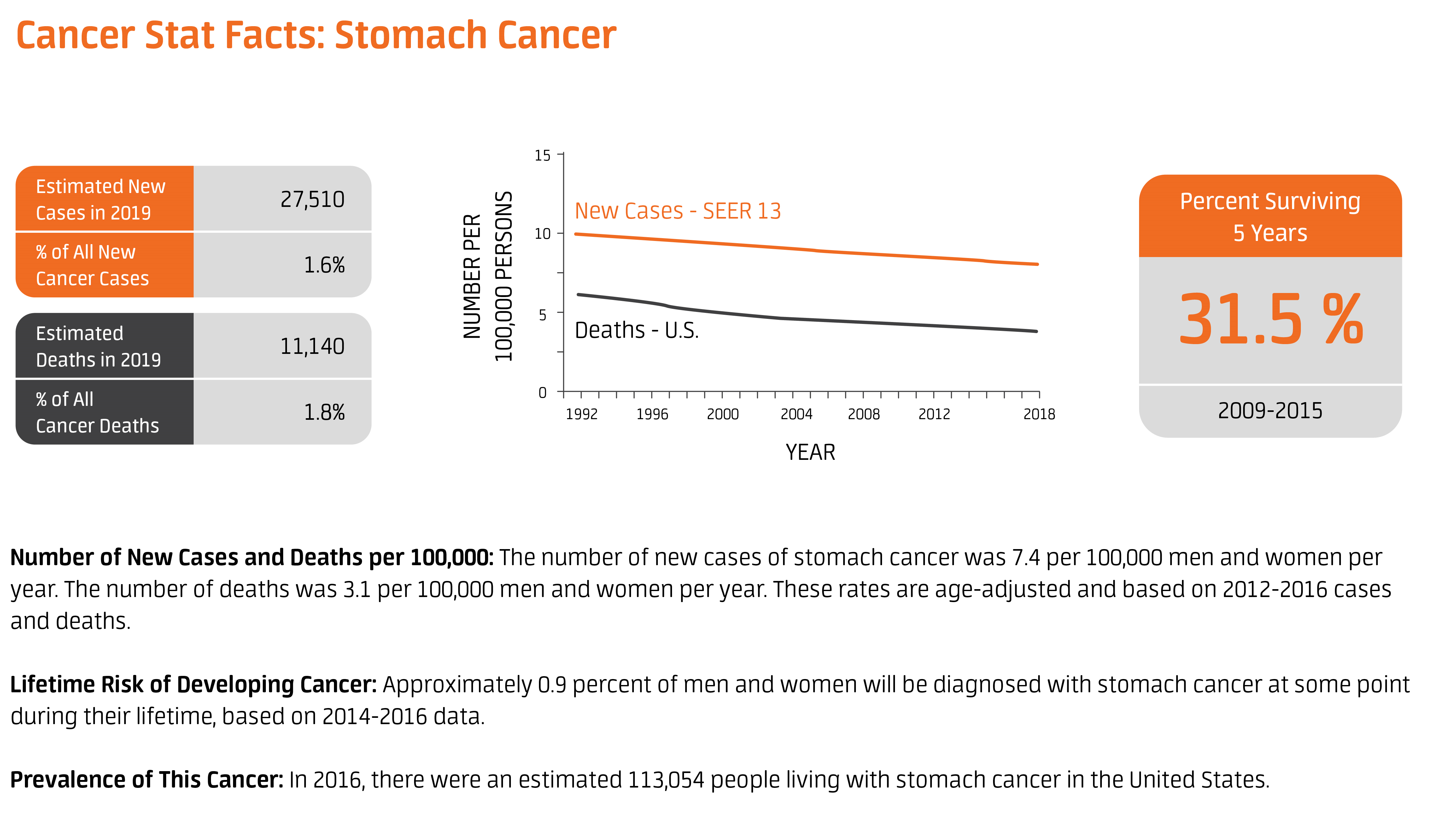The science
A hallmark of many cancers is the elevated blood cfDNA. CLS Therapeutics was the first to make the breakthrough discovery showing that the destruction of serum cfDNA holds promise in cancer treatment, contributing to the decrease of primary tumor growth and metastasis formation.
Based on these discoveries by CLS Therapeutics founders and additional research from leading scientific groups, we are advancing first-in-class anticancer gene therapy, CLS-014, to disrupt circulating cfDNA. We believe this therapy may hold the potential to combat a wide range of tumors where elevated cfDNA has a biological significance in appearance and progression.
Pancreatic, liver and stomach cancers are characterized by elevated levels of cfDNA, which plays a crucial role in their progression.
More detail on selected cancers



